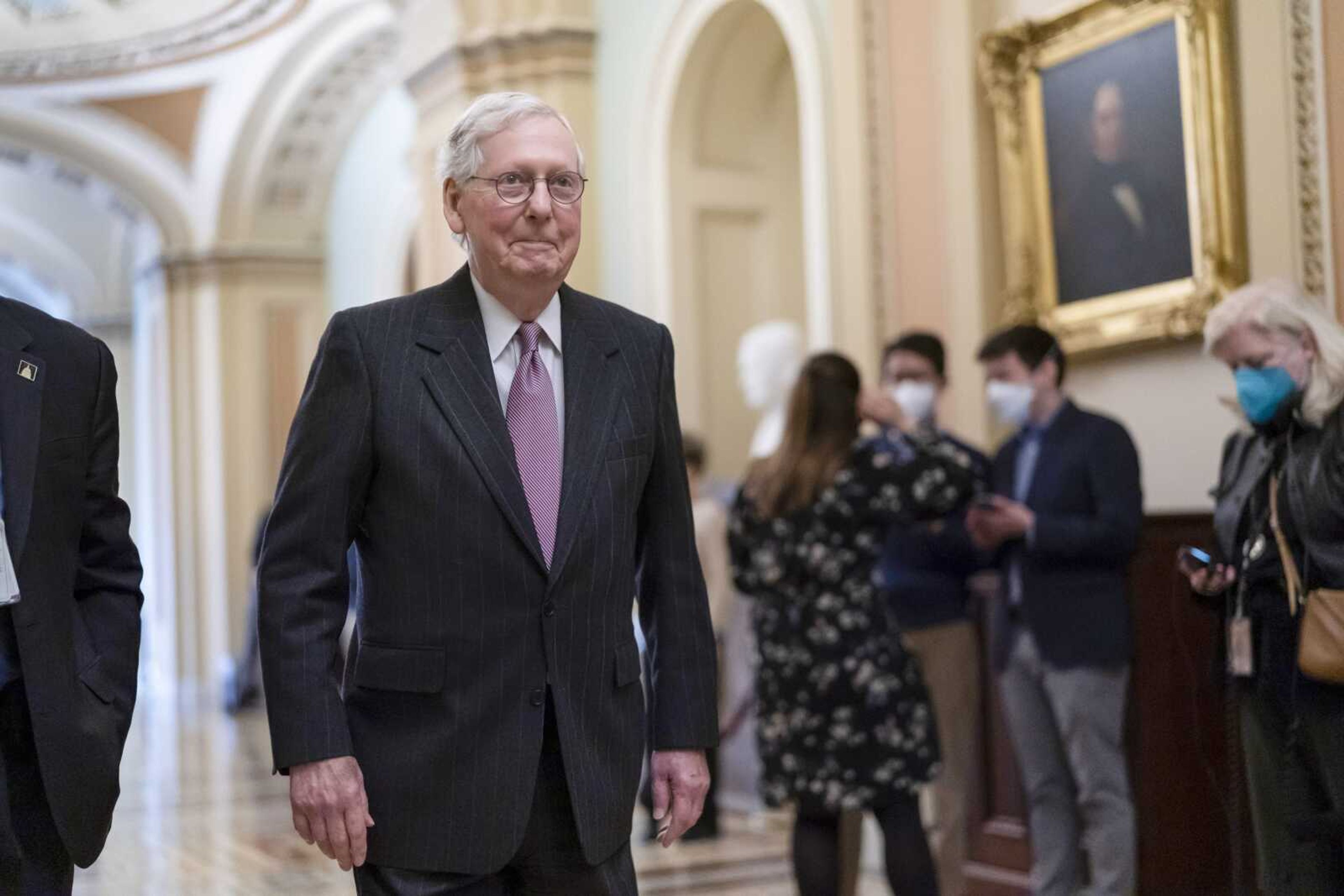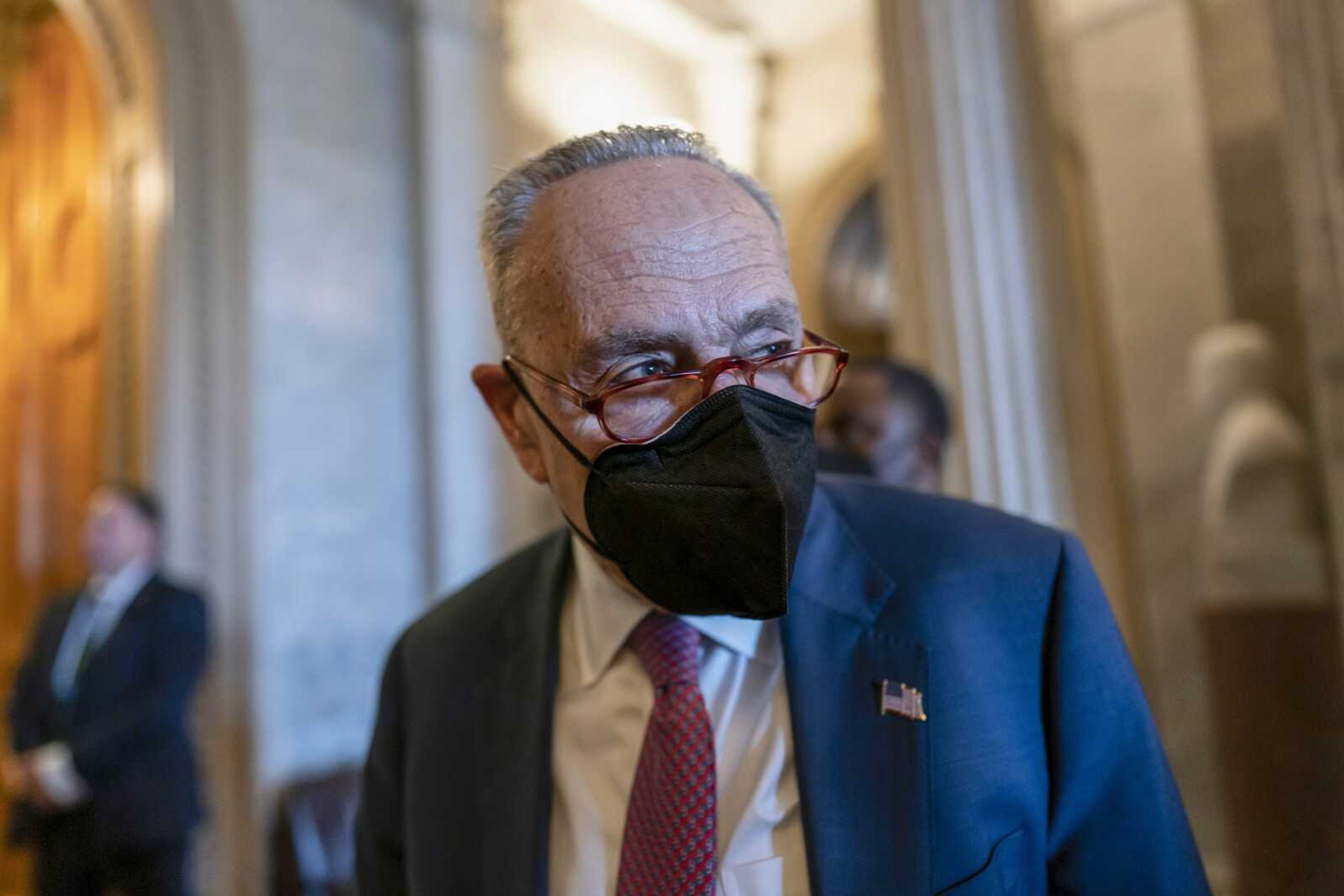Senate sends Biden bill averting federal shutdown
WASHINGTON -- The Senate gave final approval Thursday to legislation averting a weekend government shutdown, sending President Joe Biden a measure designed to give bipartisan bargainers more time to reach an overdue deal financing federal agencies until fall...
WASHINGTON -- The Senate gave final approval Thursday to legislation averting a weekend government shutdown, sending President Joe Biden a measure designed to give bipartisan bargainers more time to reach an overdue deal financing federal agencies until fall.
Final passage was by a bipartisan 65-27 vote, five more than the 60 votes needed. The House easily approved the legislation last week. Each party had concluded an election-year shutdown would be politically damaging, especially during a pandemic and a confrontation with Russia over its possible invasion of Ukraine.
Yet as with virtually all must-pass bills, politics hitched a ride. Before passage, conservatives forced votes on amendments including on one of the year's hot-button issues, COVID-19 vaccine mandates. They were defeated along party lines.
One by Sen. Mike Lee, R-Utah, and several colleagues would have blocked existing federal vaccine requirements for the military, government employees and contractors and health care workers.
Another by Sen. Ted Cruz, R-Texas, would have halted federal funds for school districts imposing their own vaccine requirements. Sen. Mike Braun, R-Ind., proposed another requiring Congress' non-binding federal budgets to balance within 10 years.

United Democrats can defeat GOP proposals in the 50-50 Senate with Vice President Kamala Harris' tie-breaking vote. But with Harris in Europe and some Democrats missing because of illness or ailing spouses, Democrats prevailed after several Republicans also left for travel or to begin the chamber's recess.
A separate GOP move to block federal spending on pipes used for crack faded away after the Biden administration said it never planned to do that and would not. The money is part of a program aimed at helping drug abusers avoid hurting themselves further.
Amending the bill would have caused complications because the House is also gone for recess but would have had to pass the revamped version before sending it to Biden.
Without Senate passage of the identical House bill, agencies would have had to stop functioning over the weekend. The legislation will finance government through March 11.
Both parties hope the short-term measure will be the last one needed as negotiators craft compromise bills financing agencies through Sept. 30. Since the government's budget year began last Oct. 1, federal agencies have functioned at spending levels approved in the waning weeks of Donald Trump's presidency.
The new spending bills will be bipartisan compromises but will let Biden and Democrats controlling Congress put more of a stamp on spending priorities. They also are expected to provide defense increases the GOP wants.
In recent decades Congress has routinely finished its budget work months late. Averting shutdowns prompted by partisan point-scoring has become an accomplishment, not a given.
Connect with the Southeast Missourian Newsroom:
For corrections to this story or other insights for the editor, click here. To submit a letter to the editor, click here. To learn about the Southeast Missourian’s AI Policy, click here.










